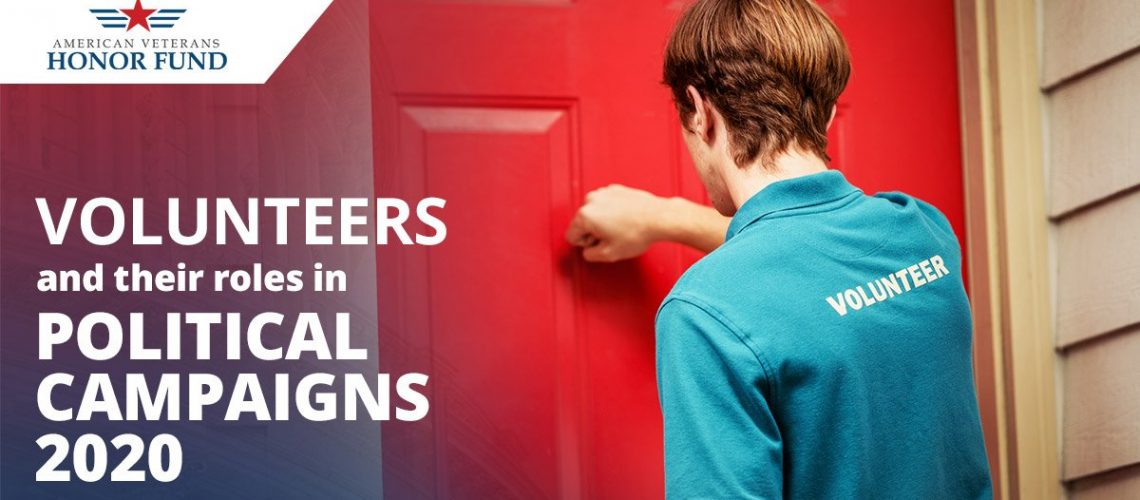All too often during election season, many voters feel the pangs of feeling insignificant. How, they may wonder, can my one vote count when there are so many people who may vote otherwise? How can my voice be heard in the crowd? When these feelings set in, it can be difficult to engage voters. It can even be difficult to muster the motivation to vote, period.
This isn’t how it should feel. Voting is a Constitutional right — that means it matters, and it’s significant.
So what’s a way to feel a bigger impact, to make your vote feel that it matters even more than it already does? Volunteering. And particularly in a time like now, during the coronavirus pandemic that has changed the format of the campaign trail in an unprecedented way, volunteers are an invaluable resource for candidates hoping to take office this fall.
How can volunteers be helpful in the 2020 election? Quite a few ways! It’s relatively easy to get involved with a campaign, especially at the local and state levels. Campaign trails are tough, and right now there is a lot of manpower and creativity needed to reach voters when physical gatherings aren’t occurring.
Recruiting voters and more volunteers: A movement is only as strong as those powering it, and that strength often comes in numbers. Therefore, volunteers can be highly useful in recruiting like minded individuals to join the campaign. In some cases, a volunteer may have a better chance of “grassroots” recruitment than the candidate themself simply due to accessibility and word of mouth.

Encouraging people to register to vote: The reality is that many Americans go each year without registering to vote. While the process is simple, some feel that their votes don’t count enough to go to the trouble, or maybe they simply don’t fully understand the process. Both scenarios are great opportunities for a volunteer to step in to both educate as well as encourage.
Spreading the word about the campaign: Word of mouth is one of the most successful, time-tested ways to market an idea. When engaged volunteers hit the phone lines, the email list, or even the doors of voters, the possibilities are endless. Once again, strength comes in numbers, and often a simple conversation can earn a candidate a new committed voter.
Evolution is necessary: 2020 has been a tough year for election campaigns. Between the rough and tumble experience of the Iowa caucuses and the suspension of in-person campaigning, candidates have had to think on their feet in order to meet this new reality head on. Having savvy volunteers who understand technology and the internet can be invaluable to candidates, especially now when much of the work must be done remotely. These skills also help mobilize younger voters who spend more time online than older generations.
Volunteering on a political campaign can be a fulfilling, rewarding job. Yes, it requires a commitment of time, but the value served is truly worth the effort. Volunteering helps voters take more pride and ownership in the issues and candidates that matter most to them, and this can in turn encourage other voters to engage more with elected officials. And this can only do good things for our country.
The coronavirus pandemic has changed the way the world operates in a matter of just a few short weeks. As if the chaos that were the Iowa caucuses back in February weren’t enough, the virus and the resulting shift to remote working and staying at home have shifted this year’s election in more ways than one. Read how you can campaign during COVID-19 here.


